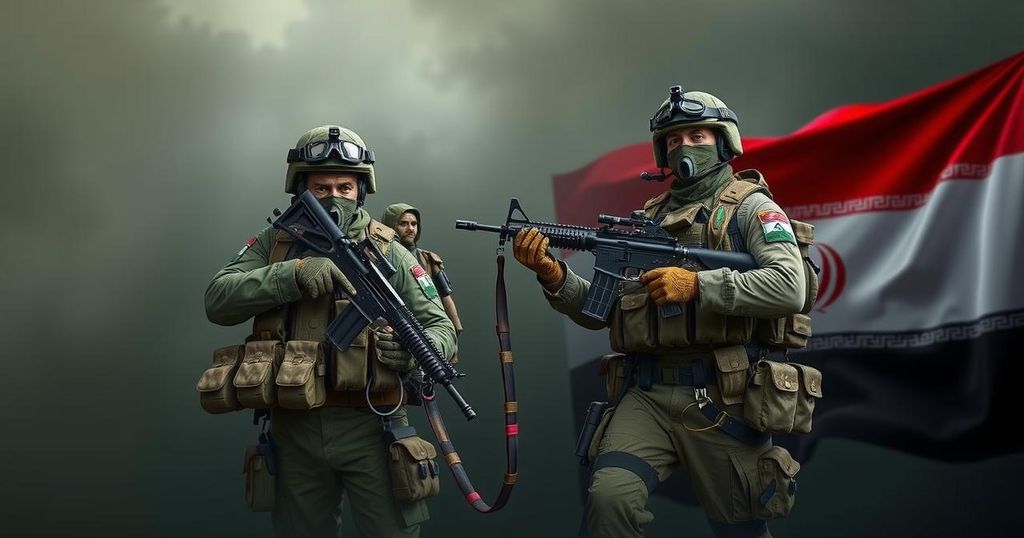Global news
- AKHBAR, A L - AHKBAR, AH, AL, AL - AHKBAR, AL - AKHBAR, AL - LAMI, AL - NUJABA, ALI KHAMEINI, ASIA, AXIOS, AYATOLLAH ALI KHAMEINI, CONFLICT, HAI, HAIDAR AL - LAMI, HARAKAT HEZBOLLAH AL - NUJABA, HEZBOLLAH, IRAN, IRAQ, ISLAMIC REPUBLIC, ISLAMIC RESISTANCE, ISRAEL, KHAMENEI, MIDDLE EAST, MILITARY OPERATIONS, NORTH AMERICA, RESISTANCE, RETALIATION, UNITED STATES, US, WASHINGTON POST
Jamal Walker
0 Comments
Iraqi Militias Strengthen Ties with Iran for Coordinated Response Against Israel
Haidar al-Lami from the militia Harakat Hezbollah al-Nujaba claims that the group is fully aligned with Iran to retaliate against Israel’s recent attacks. They emphasize the right to target Israel from Iraqi territory, while Iraqi officials express concern over escalating tensions. The Iraqi government is wary of conflict that might compromise its relations with Iran and the U.S.
A member of the Harakat Hezbollah al-Nujaba militia, Haidar al-Lami, has asserted in an interview that the group is coordinating closely with Iran to plan retaliatory strikes against Israel. Al-Lami claimed that this collaboration ensures precision in both timing and location for an imminent response to Israeli actions. He emphasized Iran’s sovereignty in targeting Israel from Iraqi soil and voiced expectations that resistance forces would utilize advanced missile technology in future operations. Furthermore, he condemned Israel’s recent attacks as violations of international norms, supported by U.S. cooperation, and indicated that the priority is currently to engage Israel before addressing U.S. military bases. Reports have suggested that Iran might leverage its capabilities to launch a significant retaliatory strike utilizing drones and ballistic missiles from Iraq. Yet, the Iraqi government, led by Prime Minister Mohammed Shia al-Sudani, remains cautious of escalating tensions that could jeopardize relationships with both Iran and the U.S. The intertwining relations among Iranian forces and Iraqi militia leave the official Iraqi stance precarious, as military actions could precipitate broader conflicts or justifications for Israeli strikes on Iraqi territory.
The context of this discussion arises amidst escalating tensions between Israel and Iran, particularly following an attack by Israel on Iranian military facilities. The possibility of Iranian retaliation has gained traction, with Iraqi militia groups pledging their support for Iran and articulating plans to respond to Israeli aggression. The dynamics between these non-state actors and the Iraqi government illustrate a complex interplay of regional geopolitics, national sovereignty, and international relations that warrant close scrutiny.
The coordinated efforts between Iranian forces and Iraqi militias signify a potentially volatile escalation in response to perceived Israeli transgressions. As discussions of retaliation gain momentum, the Iraqi government’s position becomes increasingly tenuous, balancing the interests of its allied countries against the actions of armed factions within its borders. The looming threat of Iranian missile strikes from Iraq poses serious implications for regional security and diplomatic relations.
Original Source: www.jpost.com




Post Comment